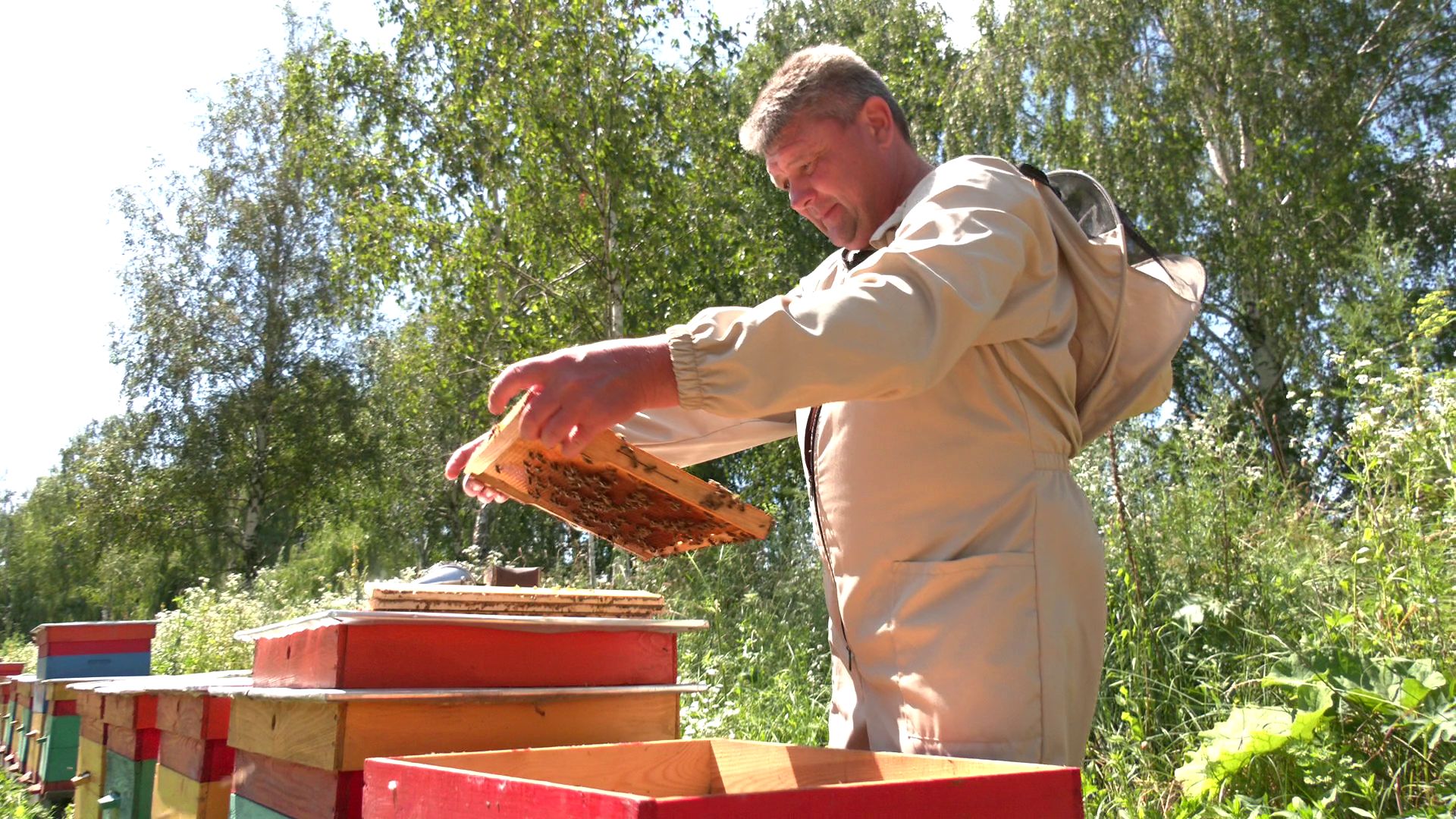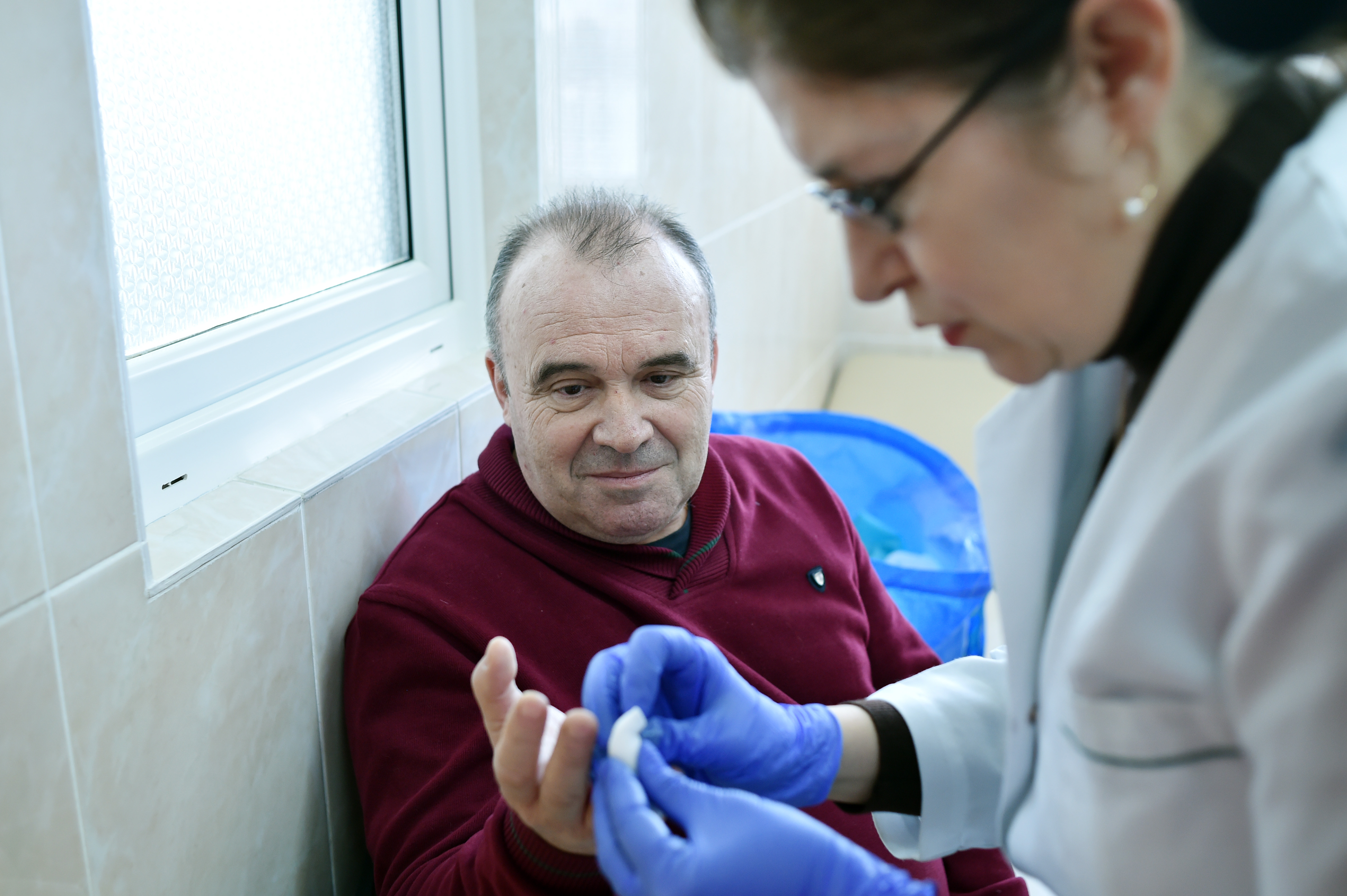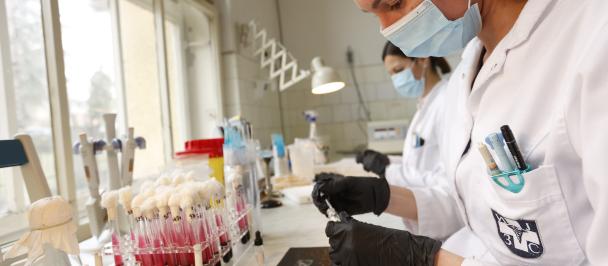The support of the Chernobyl-affected areas remains a top priority for the UN country team in Belarus 37 years after the catastrophe at the Chernobyl Nuclear Power Plant.
Enhancing human potential and fostering regional development are key to development of the Chernobyl-affected areas in Belarus
April 26, 2023

The importance of the post-Chernobyl development is embedded in the UN General Assembly Resolution of 16 December 2019 “Strengthening of international cooperation and coordination of efforts to study, mitigate and minimize the consequences of the Chernobyl disaster”.
Since 1986, international organisations, donors, private sector, and civil society supported the rehabilitation of the affected communities and territories. UN agencies helped to implement more than 80 large-scale recovery and development programmes with a total budget of more than US$ 70 million. Over the past five years the United Nations Development Programme (UNDP) together with the national and international partners, provided support to 68 initiatives in the affected areas amounting to US$ 5.85 million.

The entrepreneurs in Brahin district develop good beekeeping practices for sustainable local apiculture.
Locally initiated projects have aided to the development of entrepreneurship and farming, promoted healthy lifestyles, and helped prevent non-communicable diseases. Advancing ecotourism facilitated preservation of natural and cultural heritage.
The government took the biggest part of the restoration effort. To address the consequences of the disaster six national programmes with a budget equivalent to more than 19 billion US dollars have been implemented in the affected regions. The sixth programme, launched in 2021, focuses on enhancing medical services, social and economic development, and nature preservation.
Systematic and integrated governmental support and international assistance from UN agencies and donors have contributed to the transition of the Chernobyl districts from recovering to territories on their path to sustainable development.

"It is very important that people living in the affected territories and throughout the country have access to quality basic education, healthcare, and social services". Alexandra Solovieva, UNDP Resident Representative in Belarus.
"My missions to the recovering regions and the meetings on the ground there have shown that human capital is key to sustainable development," said Alexandra Solovieva, UNDP Resident Representative in Belarus, in her welcome address to the participants of the Council for Sustainable Development on the International Day of Remembrance of the Chernobyl Disaster. - It is very important that people living in the affected territories and throughout the country have access to quality basic education, healthcare, and social services. This is also relevant to the arriving migrants and refugees who contribute to development through socio-economic integration".
Today, the partnerships between UN agencies, government, business, and nongovernmental organisations aimed at achieving the Sustainable Development Goals are built on investments, new models of development financing, strategic innovations in digital and green solutions, and delivered through development projects and initiatives.
The Chernobyl Investment Platform can serve as an instrument for preparation of bankable projects and implementation of the government - private sector initiatives, such as the One District - One Project Initiative. The platform is the focal point of the UNDP's proposed infrastructure for supporting development projects, which intends to create new investment opportunities for the affected districts.
UNDP also provides expertise on a range of issues in green and climate finance instruments, improved budgetary efficiency and support for innovations.
Strategic innovation is among government priorities in regional development. The key, however, is to support the development of innovative developments from idea to its implementation.
Together with the State Committee on Science and Technology, UNDP is working to develop venture capital financing mechanisms for innovative industrial and high-tech projects.
In 2022, UNDP gathered 34 innovative technologies and develop 11 digital solutions for the Chernobyl districts. Among them is a business navigator that helps to digitize local economic potential. This year the solution will be piloted in several Chernobyl districts. Apart from that, in partnership with the Ministry of Economy, UNDP has developed a digital map of business support infrastructure.
Over the past four years, 32 new businesses have been supported by UNDP, including in Chernobyl-affected districts. 15 of them were initiated by women.
A favorable environment is necessary for the local entrepreneurial initiative to grow in the Chernobyl districts.
The new small and medium-sized enterprises delivered 335 new products and services to the local communities; helped create 335 additional jobs. The support to entrepreneurship facilitates the development of local business communities and helps connect them across districts. This support also encourages innovations and pilots development solutions and technologies in the districts.
The support for entrepreneurial initiative and innovation goes hand in hand with improving entrepreneurial literacy of the local population. Training in the basics of entrepreneurship, business management, finance, innovative and green business models helps to strengthen the capacity of local economies and to stimulate young people and professionals to stay in the regions.
Particular attention is being paid to the development of women's entrepreneurship. This year, UNDP plans to launch a mentor programme on women's entrepreneurship in rural areas.
Human capital is one of the capital requirements for sustainable development. It is essential for local communities to have access to quality basic health and psychosocial services, education and social security.
Thus, in 2020 the World Health Organization (WHO) developed a framework for mental health and psychosocial support in radiological and nuclear emergencies to address the need for increased preparedness and response to nuclear disasters as well as with interventions focused on mental health and psychosocial support. In partnership with the International Agency for Research on Cancer, WHO is continuing epidemiological studies of the populations in the Chernobyl-affected districts.

37,000 people, including seniors and people with disabilities, benefited from improvement of the healthcare services.
UNDP has carried out a number of projects over the past five years to lower the risks of non-communicable diseases, prevent their occurrence, and promote healthy lifestyles.
As part of its response to COVID-19 pandemic, UNDP together with the Ministry of Health, delivered modern medical equipment and initiated development of the concept for inter-regional centres. They will help bring specialized medical care in districts as close as possible to patients with severe illnesses or acute conditions.
The United Nations Population Fund (UNFPA) works across Belarus, including the Chernobyl districts, to promote reproductive health and gender equality. Through such practices as engaged fatherhood, which helps women develop their potential, and reduction of ageism (age discrimination) in society for development of active longevity, the agency contributes to sustainable development of the regions.
UNFPA helps to increase access to reproductive health services using various techniques. For example, equal participation of men and women in pregnancy courses helps engage with men during pregnancy and childbirth and to promote active fatherhood.
The United Nations Children's Fund (UNICEF) focuses on systemic work with children and adolescents in the affected territories. In 2011, the city of Gomel joined UNICEF's Child Friendly City initiative. Later, in 2015, a youth parliament was set up to promote local youth initiatives in the region.
"Leave no one behind" is a key principle of the Sustainable Development Goals, which is also used in UN work in the Chernobyl districts. The International Agency for Migration (IOM) and the United Nations High Commissioner for Refugees (UNHCR) provide humanitarian and psychological support to refugees from Ukraine and migrants arriving in the Chernobyl districts. Together with the Belarusian Red Cross UNDP and other UN agencies helped create a digital platform WeHelp.by. To people arriving in the country the platform gives access to comprehensive information available on social and economic assistance, including employment possibilities.
The Chernobyl disaster also had an impact on the environment. Therefore, it is very important for the affected areas to ensure environmental safety.
Flood meadows in the Belarusian Polesie region.
UNDP partnered with the Ministry of Natural Resources and Environmental Protection and local authorities to apply nature-based solutions for restoration of valuable ecosystems, such as peat bogs and floodplain meadows in the Belarusian Polesie region.
In the Homiel region, UNDP helped remove and safely dispose of 330 tons of persistent organic pollutants (PCB-containing waste). Work is also underway to preserve protected areas, develop sustainable tourism and promote environmental education among children and youth through environmental centres and green schools.
The joint efforts of the government, local communities, private sector, civil society, and UN agencies help Chernobyl-affected areas to accumulate unique knowledge and experience and apply it to practice for advancing local development. This stimulates human development and opens up new opportunities for innovation and technology in all areas of people's lives in the districts developing after Chernobyl.

 Locations
Locations



